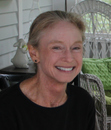Sallie Showalter's Blog, page 8
December 24, 2020
Whither Jubilation?
 A soothing drink and a good book may help us get through these dark times. Photo by Joe Ford. Joe Ford, of Louisville, Ky., responds to my recent posts, offering paths to hope and joy during this holiday season. If you would like to submit a post to Clearing the Fog, please contact us here.
A soothing drink and a good book may help us get through these dark times. Photo by Joe Ford. Joe Ford, of Louisville, Ky., responds to my recent posts, offering paths to hope and joy during this holiday season. If you would like to submit a post to Clearing the Fog, please contact us here.My family occasionally hosts an activist who lives in Nicaragua. I think of her now, and her adopted country, and her regional neighbors in El Salvador. They have lived through what we imagined in horror would be Trump unleashed: a government that does not serve its people, but rather suppresses and murders them. How is it she and her circle survive? How is it they remain activists, remain the opposition, after decades of repression? They do not give up hope. I do not know how. But perhaps that is the mantle that we need to take on.
It appears that we in the U.S. have faced down that threat…for now, although there is a formidable group of elected officials who still support those authoritarian impulses. But where is our collective hope? Our shared, spontaneous joy? The bonfires and front-yard dances that erupted in my neighborhood the day the election was called?
Perhaps that jubilation has been muted as we continue to confront a second, physical menace. Each day COVID-19 steals thousands of Americans from their families, each one a cruel separation amid devastating national loss. Nonetheless there is hope even there, borne of the vaccines, if we can remain cautious and disciplined for another half a year or so.
At my workplace, a few of us were asked to gather some best practices for dealing with the stress of being an employee, parent, nurse, cook, spouse, and caretaker for elderly parents all at the same time, all from our home office at the kitchen table—while also striving to remain stable, confident and supportive to all (when we really have no idea what is going to happen, when the pandemic will end, when our kids can go back to school, when we can go back to work—or if we will have work). The most common advice: Be kind to yourself. You are not the only one. Call a friend.Be kind to others. Set a few goals. Meet them. But none on weekends.Take a break from the news. My plea to you is to not lose joy, to continue to find pleasure where we found it before. Things may seem hopeless and dark, but as my wife, the anthroposophist, reminds me, the shortest day of light has already passed. The light—and hope—will gradually return.
Many of us who read this blog are confessed bibliophiles. So pick up a book. I’d suggest The Secret Life of Trees if you want to be reminded that the rule of nature is not survival of the fittest, is not red in tooth and claw, but is rather the way of mutual cooperation.
Next, perfect a recipe for a drink. A Hot Toddy, or a Manhattan. Something that promotes reflection. Not beer. Maybe port.
Then set aside an hour or two each night to read and sip your drink. Post a comment to this blog with your choices. Let us in on your secrets.
I’m going to choose To Kill a Mockingbird, because it’s been a few years. And I’ll continue my ongoing experiment with the classic Manhattan.
If you cannot do both, do the reading. Do not just drink. :)
Merry Christmas to you all. Joe's Manhattan 2 shots Rye whiskey
1 shot sweet vermouth
2 dashes Angostura bitters
1 twist orange peel, or a dash of orange liqueur or orange bitters
Maraschino cherries
Mix liquid ingredients together in a glass with a single ice cube. Stir 30 times.
Twist the orange peel over the glass and drop in.
Garnish with a cherry and add a few drops of the cherry juice.
In cold weather, remove the ice cube.
Published on December 24, 2020 09:08
December 20, 2020
Stillness
 Sharp's Branch, not far from the Kentucky River in Anderson County, Kentucky. Photos by Rick Showalter. I’ve used up all my words. Whatever I was allotted in 2020 has already spilled on the page. It seems I’ve ranted and wondered and proclaimed all year, and now I have nothing left. Language fails me. My usually active mind is dull. I feel defeated. Lifeless.
Sharp's Branch, not far from the Kentucky River in Anderson County, Kentucky. Photos by Rick Showalter. I’ve used up all my words. Whatever I was allotted in 2020 has already spilled on the page. It seems I’ve ranted and wondered and proclaimed all year, and now I have nothing left. Language fails me. My usually active mind is dull. I feel defeated. Lifeless.While others finally see a glimmer of hope, I remain shrouded in despair. Is it the incessant darkness of winter in Kentucky? The cumulative exhaustion of the last four years? The overwhelming sense of grief engulfing so many across our country?
Having lost the ability to express myself, I, too, feel bereft.
For a few moments this past week, however, I felt the sap gurgle in my veins. A classmate from long ago invited a few of us to walk the paths he had cut through his pastureland and wander the woods along Sharp’s Branch. The sky was still gray, the leaves under our feet damp. But we were instantly silenced by the talkative stream, seemingly full of joy and purpose, and by the slender trees shielding us defiantly from the atrocities of the man-made world nearby.
Quietude settled lightly on our shoulders.
As I try to recapture the serenity of that place, the words still do not come. But I feel a wan smile creep across my face. Perhaps there is hope in me yet.
Published on December 20, 2020 14:41
December 6, 2020
The Pain Surfaces
 This past week the pain of the pandemic finally took me down.
This past week the pain of the pandemic finally took me down.No, none of my family members or close friends has contracted COVID. Since the death of one former colleague in early spring, I haven’t lost anyone dear to me to the disease. I remain healthy. But everyone around me seems to be suffering.
They are suffering because they have been around others who have learned they were carrying the coronavirus, and now they don’t know whom they can safely see or whom they may have already infected, pending more testing. They’re suffering because they have family members in extended care facilities and the lockdowns are expanding once again. They’re suffering because they have family members who have recently been diagnosed with a serious medical condition, and they know the road ahead will be further complicated by the demands of growing numbers of COVID patients and overburdened health care workers. They’re suffering because family members have recently died from other causes, but during those illnesses they had limited access to those who were ailing and now they are mourning without the physical tenderness others could offer.
They’re suffering from the prolonged isolation that has finally overcome them.
Throughout this year I’ve made a point to follow the news about the danger of the pandemic and its toll and to read the tributes to those who have lost their lives to this insidious disease. I wanted it to be real for me as I continue to hunker down in the safety of my home. I railed about our collective lack of action combatting the disease. I fretted that more Americans couldn’t do the simplest things to keep everyone safe. More recently, I privately admitted that I wasn’t feeling the fatigue as keenly as others, because I was so comfortable in my own protected space.
But this week it finally overpowered me. I broke down when I read about the untimely death of Fayette County Schools Superintendent Manny Caulk. I never met Mr. Caulk. I have, of course, read about his efforts to address the inequities of education in Lexington’s schools. I knew a little about his background. I knew he had survived a serious battle with cancer when he first arrived in Kentucky. Today we only know that he succumbed after a brief illness. But that he should lose his life at 49 after displaying a lifetime of courage and after having done so much good, necessary work just seems unbearable. I send my sincere condolences to his family.
So, it appears I too have been broken. I pride myself on my toughness. I want to be a bulwark for others. All my life I’ve told myself that my early losses made me more empathetic, more sympathetic of the suffering of others. But now I feel there is nothing I can offer to all my friends who are reeling.
All I can do is share these words.
Published on December 06, 2020 12:04
November 25, 2020
Our Collective Exhale
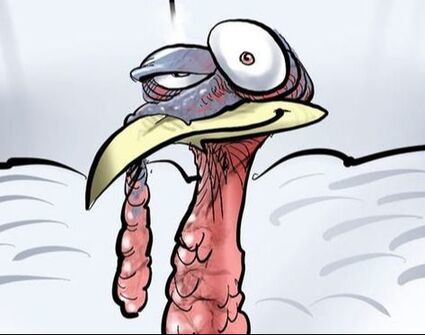 Many of us feel like turkeys who just received a pardon. Time to return to living! (Drawing by Gary Varvel, formerly the cartoonist for the Indianapolis Star) Did you feel that lurch? That was the earth shifting on its axis Monday night when GSA Administrator Emily Murphy finally acceded to a peaceful transfer of power. I can’t say that she officially recognized Joe Biden as the president-elect, because she didn’t. She never mentioned his name or his new role in her letter of ascertainment. But that doesn’t matter.
Many of us feel like turkeys who just received a pardon. Time to return to living! (Drawing by Gary Varvel, formerly the cartoonist for the Indianapolis Star) Did you feel that lurch? That was the earth shifting on its axis Monday night when GSA Administrator Emily Murphy finally acceded to a peaceful transfer of power. I can’t say that she officially recognized Joe Biden as the president-elect, because she didn’t. She never mentioned his name or his new role in her letter of ascertainment. But that doesn’t matter. Those pleasurable frissons that followed on Tuesday? Those were the aftershocks we experienced as President-elect Biden’s new security team introduced itself to the country. Oh “the coherence, the humanity, and the sincere humility,” as my cousin Charley said. “So adult. So refreshing. So encouraging,” said cousin Sandy. Charley again: “I had to stop and sit down and listen to what normalcy and rationality and world leadership actually sounds like.” Ever reflective, cousin Vince added: “What a restorative influence he will impart to our allies… My spirit was buoyed by the quality and experience of the new team as a whole.” In short, as cousin Barbara said, “The adults have returned to 1600 Pennsylvania Avenue.” Cousin Myra summed up our feelings: “WE ARE FINALLY BACK TO THE GOOD OLE USA !!!!”
I realize you may not fully share my family’s enthusiasm for this week’s turn of events. You may be fearful of the policies this team will support. You may feel it’s reactionary to celebrate a return to a state of decorum that emphasizes civility and diplomacy and compassion. You may agree with Sen. Marco Rubio that these individuals, if the Senate confirms them, “will be polite & orderly caretakers of America’s decline." You may have been uncomfortable seeing that diverse group of vastly experienced leaders on the stage with President-elect Biden. It may feel to you that the earth shifted in a more dastardly direction.
But I hope, on this Thanksgiving eve, we can all exhale and count our blessings. Our democracy is intact. Record numbers of Americans were able to vote in the middle of a pandemic in a variety of sometimes novel ways, despite widespread and creative efforts at voter suppression. Amid fears of malign intrusion, the Elections Infrastructure Government Coordinating Council said the election was “the most secure in American history.”
For 20 days after the election we held our collective breath, wondering if we could indeed come to a peaceful settling of the score. It appears the proverbial guard rails, though strained, have held.
Nonetheless, nearly half the nation stands to be unhappy with this outcome. Although President-elect Biden received over six million more votes that President Trump, the election revealed a deep and lasting bifurcation in our philosophies of how government should work and how leaders should behave. It will take remarkable effort on the part of our elected officials and every American citizen to pull together and address the harrowing list of challenges we face, starting with an out-of-control global pandemic and an economy that has abandoned a wide swath of the electorate.
So let’s all take that deep breath. Let’s see if we can reset our expectations, our hopes, and our vision of what this country can be. Let’s look to our right and our left and see who most needs our help. And then let’s get back to work.
Published on November 25, 2020 10:14
November 21, 2020
Among the shadows
 Panther Rock near Lawrenceburg, Ky. Photos by Rick Showalter. A few years ago, as I was piecing together my father’s youth from his writings and photos, it seemed clear that three of his favorite Anderson County haunts were the camp he built with Bobby Cole on Salt River, Lovers Leap, and Panther Rock.
Panther Rock near Lawrenceburg, Ky. Photos by Rick Showalter. A few years ago, as I was piecing together my father’s youth from his writings and photos, it seemed clear that three of his favorite Anderson County haunts were the camp he built with Bobby Cole on Salt River, Lovers Leap, and Panther Rock.Perhaps the latter two were preserved in words or pictures largely because they were notable local landmarks, scenic hideaways from what passed for civilization in the small town of Lawrenceburg. The fact that all three feature rocky outcrops overlooking moving water may reveal my father’s affinity for those natural features. Or perhaps it’s simply a testament to the magnetic beauty of the limestone palisades that dot the eastern Anderson County landscape.
In 2015, retired biologist and Lawrenceburg native Bill Bryant took me to Camp Last Resort for the first time. My own love for the woods and water made me wonder, somewhat peevishly, why no one had ever thought before that I might like to see the place that was so special for my dad. The photo on the cover of The Last Resort shows my father perched on a bluff above the small waterfall near his camp on Salt River. When I saw that photo, it seemed clear where I got my penchant for sitting with my feet dangling over a rocky cliff. (See photos below.)
I still have not been to Lovers Leap, the Kentucky River overlook near where I used to bike as a teenager, on rural roads I imagine my father also pedaled. But last weekend I finally made it to Panther Rock—unfortunately, too late for Dr. Bryant, the expert on Panther Rock, to accompany me.
I’m not sure what I expected. I had seen one photo of my dad seated below the rock face, but it had been hard to make out the full magnitude of what the picture relayed. When our small hiking party caught our first glimpse of the rock from the narrow approach path, however, I was dumbstruck by its immensity. We scrambled down the steep path and poked our noses into the cave at the bottom of the wall. We negotiated the fallen rocks and boulders until we reached the small stream dropping sharply away from Panther Rock.
 In this photo taken by Bobby Cole in 1940, the yellow arrow points to Pud Goodlett sitting below Panther Rock. The whole area felt mystical, magical, remote. I could not believe this gem lay hidden, at least for me—majestic and unexplored—as I grew up roaming the domesticated woods and creek behind my Lawrenceburg subdivision, just a short distance away.
In this photo taken by Bobby Cole in 1940, the yellow arrow points to Pud Goodlett sitting below Panther Rock. The whole area felt mystical, magical, remote. I could not believe this gem lay hidden, at least for me—majestic and unexplored—as I grew up roaming the domesticated woods and creek behind my Lawrenceburg subdivision, just a short distance away.
In local mythology, Panther Rock got its name in 1773 when Elijah Scearce, a hunter and trapper from nearby Fort Harrod, was captured by a Native American chief. That first night a panther supposedly sneaked into their camp under the rock face and killed Scearce’s captor. Scearce then memorialized the area by naming it after the animal that had purportedly saved his life.
The area seems to have preserved its magic ever since. I am grateful to the property owners who permitted us to absorb its wonder for a short time on a bewitchingly perfect fall day. I can only hope that generations of future explorers who stumble into this sacred place will experience the same awe as their forebears. I know I could almost hear Pud and Bobby speaking in hushed tones as they pulled bacon sandwiches from their knapsack.
 Bobby Cole at Lovers Leap in 1941. Photo taken by Pud Goodlett. On May 13, 1942, Goodlett wrote in his journal, "Rinky, Bobby, and I went to Lover’s Leap this afternoon. We saw the unusual red sticky flower, and lots of pinks, but outside of these, the day was very dull. Lover’s Leap seems to have lost its attraction."
Bobby Cole at Lovers Leap in 1941. Photo taken by Pud Goodlett. On May 13, 1942, Goodlett wrote in his journal, "Rinky, Bobby, and I went to Lover’s Leap this afternoon. We saw the unusual red sticky flower, and lots of pinks, but outside of these, the day was very dull. Lover’s Leap seems to have lost its attraction."  Pud on a bluff above Salt River near Camp Last Resort.
Pud on a bluff above Salt River near Camp Last Resort.  Pud Goodlett with his family on a rock outcropping around 1961. Photo taken by Charlie Denny. More photos of Panther rock, november 2020
Pud Goodlett with his family on a rock outcropping around 1961. Photo taken by Charlie Denny. More photos of Panther rock, november 2020
Published on November 21, 2020 16:48
November 14, 2020
Unexpected Gifts
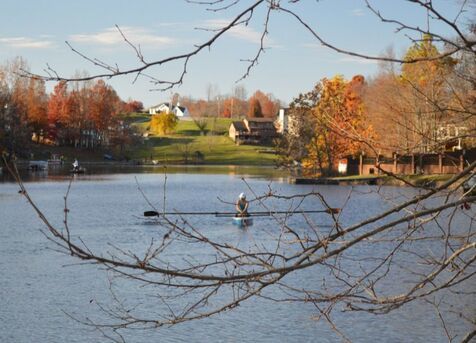 Photos by Rick Showalter Last week, as Covid-19 cases surged all across the country and the nation remained mired in a contentious election cycle, we in the Ohio Valley and the Midwest enjoyed unseasonable fall weather, with abundant sunshine and temperatures regularly reaching into the mid- and upper-70s. Each day I found myself setting my work aside and spending more time outdoors—walking the dog, bicycling tree-lined country lanes, kayaking on my small lake…and trying to stay upright in the rowing scull recently bequeathed to me by a friend and neighbor who had decided to rejoin civilization in Lexington.
Photos by Rick Showalter Last week, as Covid-19 cases surged all across the country and the nation remained mired in a contentious election cycle, we in the Ohio Valley and the Midwest enjoyed unseasonable fall weather, with abundant sunshine and temperatures regularly reaching into the mid- and upper-70s. Each day I found myself setting my work aside and spending more time outdoors—walking the dog, bicycling tree-lined country lanes, kayaking on my small lake…and trying to stay upright in the rowing scull recently bequeathed to me by a friend and neighbor who had decided to rejoin civilization in Lexington.That neighbor, David Bettez, was a day away from closing on his house here on the lake. I discovered messages on my phone asking if I would be willing to store his single scull on my property until he could find someone—possibly from one of the rowing clubs in Cincinnati or Louisville—who might be interested in it. I’ve known David and his wife, Roi-Ann, for over 20 years. I knew they were avid sailors. I knew they occasionally paddled their canoe on the lake. I had no idea David owned a scull.
As I read his message, I’m sure my pupils grew to the size of saucers and my heart started racing. I had always wanted to try rowing but had never had an opportunity. My cousins Martha and Becky are accomplished rowers who have regularly competed at the Head Of the Charles, the elite competition held each October on the Charles River in Boston. Once when I was visiting Martha in Seattle years ago, I went out to Lake Washington early one morning to watch rowing practice. They put me in the motorboat with the coach. It was a fascinating introduction to a grueling sport. I wanted to try it.
So I asked David if he would consider selling the scull to me.
Turned out that watching me wrestle with those big oars in the narrow inlet near my house was all the payment he wanted. I’m sure it was akin to attending comedy night at the local pub (back when those things were possible). The amazingly generous deal he offered included a day of instruction and several books on rowing technique and personal rowing adventures. The books will taunt me until I find a few days to immerse myself in them. The beginner’s instructional course took place November 9.
To calm any jitters before my introduction to the sport, I tried to assess what useful skills I might have accrued over my many decades of outdoor activity. I was accustomed to getting in and out of somewhat narrow, somewhat tippy boats. And I used to row our old metal johnboat, before we acquired lighter weight kayaks. This past summer, lazily backstroking was about all the swimming I did, so traveling backwards across the water would not be a novel sensation. In fact, my general comfort in the water made me less fearful of being tossed in by an unruly oar, even in early November.
So I hoped I could transfer some of those experiences into a successful turn in the scull. David was a gem—organized, patient, encouraging. I flailed. He talked me through it. Roi-Ann filmed. I nearly clipped the elaborate Christmas tree erected on a nearby dock. My neighbor Marc, standing on the shore watching, offered me a trolling motor.

I can’t say I ever really got the hang of it. But I think I understand, for the most part, what I need to do. Mostly I know I need practice. Miles, as Martha told me. I headed out on my own the next day, but the wind was whipping a bit and I decided I’d better not wander too far out on the open lake. So I still need many, many hours under my belt.
But more than anything, I relished having yet another excuse to be out on the water, far from all the daily horror that seemed to be smothering us. I relished a new physical challenge, at an age when bending over to tie a shoe or reaching for a clothes hanger can result in weeks of debilitation. I relished that I have friends who are willing to part with a piece of their own history so I can create a little history of my own.
Sometimes the best tonic is taking a risk. Putting oneself in a situation where humiliation is nearly guaranteed. Opening oneself to a new joy. Life can become routine, even a little dull when opportunities for new experiences have been sorely limited by necessary precautions during a pandemic. I was fortunate to have a new challenge drop in my lap. How could I let it pass without giving it a whirl?
Published on November 14, 2020 08:52
November 8, 2020
Jubilation
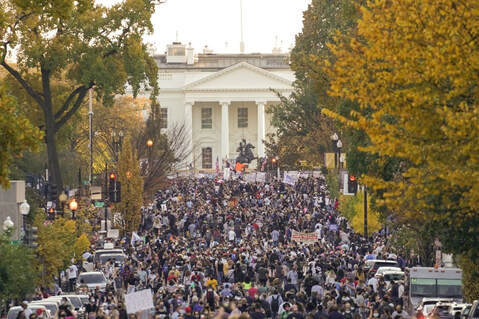 Photo: Los Angeles Times Vince Fallis, of Rabbit Hash, Ky., gets this week's last word.
Photo: Los Angeles Times Vince Fallis, of Rabbit Hash, Ky., gets this week's last word.To all those who portrayed the Black Lives Matter protesters as looters and arsonists, I point your attention to the crowds gathering in the streets of New York and Philadelphia and Washington, D.C., as well as other cities, this weekend. This is what a peaceful demonstration looks like when people are delivered from the threat of autocracy and the evil that it, by necessity, brings. It is a spontaneous outbreak of shared joy and brotherhood, and a vision of opportunity and equitable treatment for those with the most to those with the least.
It will not magically cure all the ills that have accrued, but will breathe hope into those so desperately in need of it. Who knows, maybe some of the least likely will eventually come over and join the party.
Hope springs eternal.
Published on November 08, 2020 18:08
November 1, 2020
It’s Time
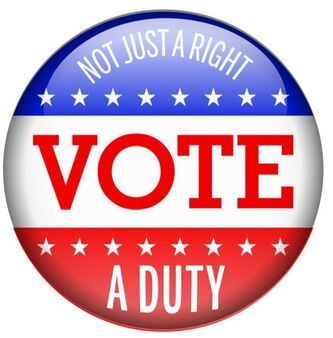 If you haven’t already—and many of us have—Tuesday you must vote. It is our responsibility as citizens to exercise our franchise. It really shouldn’t be optional, and in some countries it isn’t. In 22 countries, voting is mandatory. Many of those countries are in Central and South America, including our neighbor to the south, Mexico. In Australia, failure to vote can result in a $20 fine.
If you haven’t already—and many of us have—Tuesday you must vote. It is our responsibility as citizens to exercise our franchise. It really shouldn’t be optional, and in some countries it isn’t. In 22 countries, voting is mandatory. Many of those countries are in Central and South America, including our neighbor to the south, Mexico. In Australia, failure to vote can result in a $20 fine.Despite Americans’ typical apathy about voting—which is incomprehensible to me—it looks like we may have record turnout for this election, and that is good. In some places, such as here in Kentucky, voting is easier than it has ever been, thanks to remarkable bipartisan collaboration between our governor, Andy Beshear (D), and our secretary of state, Michael Adams (R). One of the few positives that we can attribute to a global pandemic will be the expansion of voting options across much of our country. And despite transparent efforts by some to suppress voting in certain communities, U.S. citizens are coming out in droves. As of October 31, two states, Texas and Hawaii, had already surpassed the total votes cast in 2016.
If you feel that none of the candidates has sufficiently wooed or inspired you, get over it. I haven’t heard a single candidate address the unique challenges of an aging sub-five-foot female who navigated the world most of her life as a redhead. I can’t sit home and wait for a candidate to speak to my truly special needs. I am responsible for carefully assessing the candidates and their plans for this nation’s future and voting. That’s not just my privilege as an American citizen; it’s my obligation.
As U.S. citizens, we are awarded munificent benefits. In exchange, we assume certain duties. It is our job to vote, whether there is a candidate who passionately inspires us or not, whether there is a candidate who speaks to our specific needs or concerns or not. We must make a choice among the candidates on the ballot, human though they may be. We must choose the candidate who best aligns with our values and our goals for this country.
That last statement is important. Our vote should not be solely self-referential. We should not look for the candidate we think will increase our personal wealth or grant us superiority over other citizens or anoint us with some special power. We should choose the candidate we believe has the vision for making the country better for everyone. Our fate as a nation rests on the success of us all.
Eddie Glaude Jr., the James S. McDonnell Distinguished Professor of African American Studies at Princeton University, recently said, “Liberty has become a synonym for selfishness.” We must change that. We can only be free when we take the steps to ensure everyone’s freedom. Our embrace of liberty should lift up others, not hurt them. Or sicken them. Or impede their ability to succeed.
In his comments, Glaude also said, “The idea of national sacrifice seems not to be in currency right now.” We must change that attitude, too. The first “sacrifice” we all can make is to take the time to vote. After we have taken that step, perhaps that will lead to making other small sacrifices necessary to tamp down the pandemic that is raging across this country. And then, who knows? Perhaps we’ll discover that these small sacrifices—doing something that may be inconvenient but that may help our fellow citizens—make us feel better about ourselves and our prospects as a nation. I can only hope so.
So if you have already voted, take a moment and see if you can identify one person in your circle who may be reluctant to vote. Call that person. Ask whether he or she has voted. If necessary, ask what you can do to eliminate obstacles for that friend or family member. Urge them to fulfill their civic duty. Urge them to make a choice that will lift us all up and move our nation toward a more perfect union.

Published on November 01, 2020 16:11
October 23, 2020
FOR SUCH A TIME AS THIS
 Tessa Bishop Hoggard, a native of Paris, Ky., who now lives in Texas, shares how she stumbled across Clearing the Fog and helped connect me with Jim Bannister.
Tessa Bishop Hoggard, a native of Paris, Ky., who now lives in Texas, shares how she stumbled across Clearing the Fog and helped connect me with Jim Bannister.Have you ever experienced a time in your life when the stars were perfectly aligned and from that perfection flowed precious nuggets of gold? It’s as though Sagittarius’ arrow struck its target on the Milky Way from which hidden treasures flowed for such a time as this.
And what time could that be? It is a time of a ravaging pandemic and a nation fraught with political, economic, and racial turmoil, yet in its midst virtue is found. I’m left pondering how events, encounters, and circumstances were well-positioned to uncover the details of a crime and bring healing for two families.
The catalyst for the unfolding events was the 1901 lynching of a black man in Bourbon County, Ky. In 2014 I learned about this story from my mother, the biggest supporter of my genealogy research. Immediately I applied my research skills to finding answers to the “who, what, and why” of this tragedy.
My first discovery was the “who.” Two individuals are prominent characters in this story: Mary Lake Barnes Board (the accuser) and George Thomas Carter (the accused). Though I got a good start on my research, a busy life put this project on hold.
By 2020, six years later, I had the opportunity to speak with James (Jim) Bannister, great-nephew of the victim. Jim inspired me to revive my research efforts and write a story for him. Within two weeks of restarting my research, I Googled "George Carter Paris KY 1901.” Several pages of results appeared, but one result was promising: a Murky Press blog that included an entry titled “Time Stands Still” dated 11/30/2019. Its author stated that her grandfather “spent a lifetime coming to grips with the perverted justice he witnessed as an eight-year-old boy in Paris, Ky.” My interest was piqued, and I reached out to the author for any information that her grandfather may have shared.
On June 17, 2020, the author replied that she didn’t have the specific information I was looking for; however, within her words were nuggets of gold:
“A friend of mine was doing some genealogical research for me and, upon searching for information about my great-grandmother Mary Lake Barnes Board, initially stumbled across a story about the lynching in a California newspaper.”
Whoaaaa!!!! This is incredible! Do you mean to tell me I’m communicating with the great-granddaughter of Mary Lake Barnes Board, the accuser of George Carter??? I sat motionless, telling myself to breathe, and trying to wrap my brain around the author’s response. What are the chances of encountering a close relative of an 1800s Bourbon County family that you’re researching? My only response to Sallie Showalter was, “May I now call you on your cell?”
Since that momentous call, Sallie and I have exchanged numerous emails and enjoyed many telephone conversations. I’m continually blessed by her kind, fierce, and generous spirit as well as her beautiful writing/editing skills.
The providential encounters with Jim and Sallie led to their now well-publicized meeting at the Hopewell Museum in July 2020 in which they discussed their link to the 1901 crime as well as its impact on their families. A 120-year-old crime was laid bare and two individuals exemplified the meaning of courage and forgiveness for not only Bourbon County, Ky., but a strife-ridden nation.
Ahhhhhhh, behold the golden nuggets that radiate like diamonds within the mighty and vast universe for such a time as this!
Published on October 23, 2020 10:00
October 14, 2020
Life Affirmed
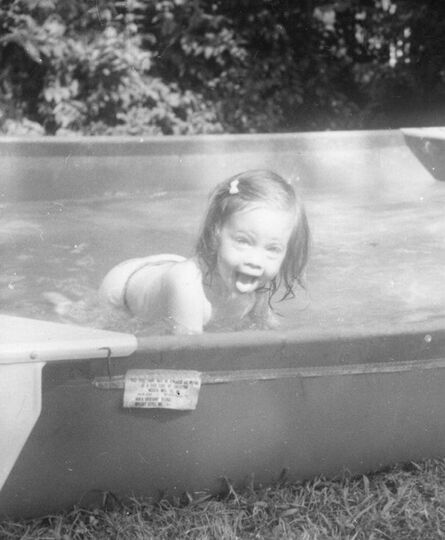 I was a pistol from the minute I was born. Or even before. “If you had been a boy, we planned to name you Lazarus.”
I was a pistol from the minute I was born. Or even before. “If you had been a boy, we planned to name you Lazarus.”My mother told me that story over and over. I was never sure whether I believed her. Would she really have dared to give me such an unconventional name, a name with such a specific Biblical story associated with it? I was a serious Sunday School student and understood the weight that name would have carried. Thank goodness I was a girl.
“The doctors told me you were dead,” my mother would continue, usually after my unrelenting energy and general rambunctiousness had worn her down. While pregnant with me, my mother had been advised that she was carrying a dead fetus in her womb. That presented enormous risk for her, and her physicians felt they had to take extraordinary steps to save her life.
But it was 1959. And a doctor could not legally “take” a baby before birth. So a courageous and determined Dr. George Heels admitted my mother to Mount Auburn Hospital in Cambridge, Mass.—for an appendectomy.
My mother was never convinced that any of this was necessary. Although the doctor had not been able to detect a fetal heartbeat during her recent appointments, she knew I was kicking and moving around. She knew she wasn’t carrying dead weight. She protested vehemently when he tried to tell her otherwise.
My mother had already successfully carried one baby to term. She had experienced the stillbirth of another, and the agonizing death of yet another shortly after his birth. Her life had hung in the balance both times. She was no novice.
“When they wheeled me into the surgery prep room before my appendectomy,” my mother would explain to me yet again, “Dr. Heels gently laid his stethoscope on my abdomen one last time. This time you kicked the stethoscope out of his hand. You finally proved to him that I was right. I knew you were fine all along.”
I expect that nearly every adult woman has a story of a doctor who didn’t believe her, who minimized her complaints, who explained impatiently, in a condescending manner, why he (in that era they were usually men) was right and she was mistaken about her own body and the symptoms she was experiencing. It still happens today, of course. It is at the root of our ongoing discussions about whether women should retain control over their own health and their own bodies.
In January 1973, when Roe v. Wade changed the law of this land, I was 13 years old. I had heard my mother’s personal story many times by this point. I had heard her share details of the suffering and the horror and the deaths of women who had sought “back-alley” abortions, or who had tried some granny’s remedy to terminate a pregnancy. She was a fierce supporter of legal abortion. She was a fierce supporter of women knowing their own bodies and making their own decisions.
Sadly, it’s time for all of us once again to drag these stories back out in the open. Sen. Gary Peters of Michigan recognized that. This week, he shared the painful story of his first wife’s abortion, a procedure that probably saved her life. As Peters said, “It's a story of how gut-wrenching and complicated decisions can be related to reproductive health." Many women, many families know the importance of having this procedure available when needed.
My mother’s story ended with an unexpected twist. She and my dad became close friends of Dr. Heels and his wife, Vera. They socialized and traveled together. It was as if helping my parents through a series of traumas connected the two families emotionally.
And that’s what we need to do again now. We need to recognize the shared humanity in all of our stories. The shared pain. The shared hope. We need to ensure that hope is available for women who find themselves in life-threatening or life-altering situations that they cannot endure. We need to trust the women when they know it is so.
Published on October 14, 2020 16:18

